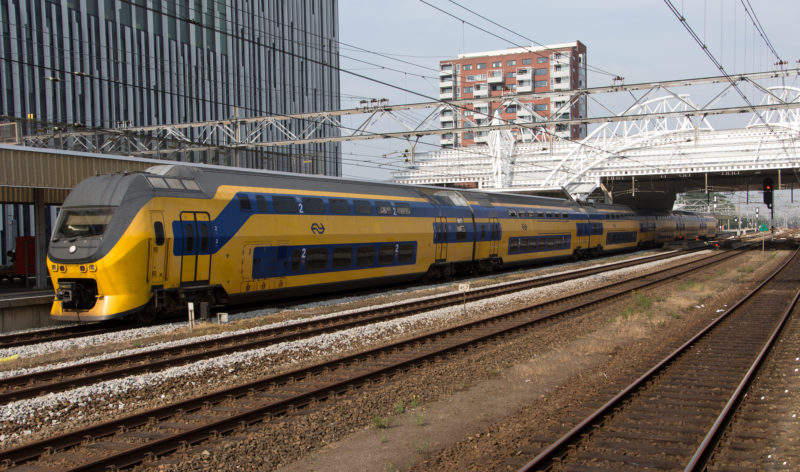
A remote monitoring system, which aims to predict the lifetime of train doors and detect potential failures in their operation is set to be completed by 2019.
The project, titled ‘Vibration Analysis for Remote Condition Monitoring’, uses algorithms to analyse the vibration of doors and image recognition software to determine the condition of the train.
“Vibrations occur either when there is a defect with a train door or a certain external stimulus,” said joining technology specialist TWI, one of the companies backing the programme.
“The vibration monitoring is based on the deformation of a simple mass-spring model, while image recognition can also be applied in order to distinguish between doors that are working correctly and those that are failing.”
Train doors have a significant influence on the safety of passengers and the condition of trains; between 25% and 50% of train defects originate with their doors, and 70% of passenger injuries involve doors, according to TWI.
“Vibration analysis and pattern recognition applied on the signals received during the operation of the train doors can pave the way for better maintenance, enhancement of future design of train doors and most importantly, decreased number of accidents,” said Sofia Sampethai, project manager of Transport Systems Catapult, another of the project’s backers.
The system was funded by the EU’s H2020 Fast Track to Innovation (FTI) scheme, an ‘innovation support programme’, according to its website.
“It can help partners to co-create and test breakthrough products, services or business processes that have the potential to revolutionise existing or create entirely new markets,” added the FTI.
A total of five companies were involved in funding the project: Hitex, Transports Metropolitans de Barcelona and Innovative Technology & Science, in addition to TWI and Transport Systems Catapult.
The FTI will remain open to submissions until 27 October 2020, and any consortia of between three and five companies established in at least three different EU member states are eligible to propose projects. Proposals can be given up to €300 million, and must be ‘built on a business plan, and focus foremost on achieving a high impact,’ according to the EU’s website. The FTI is the successor to the EU’s similar FTI Pilot scheme, which ran from 2015 to 2016, which funded 94 proposals over its two-year lifespan.
The need for improved doors has arisen elsewhere in the rail industry. Transport for London has already taken steps to upgrade the doors of its tube trains, using ‘aerospace materials’ in new designs that won the 2015 UK Rail Industry Awards.



